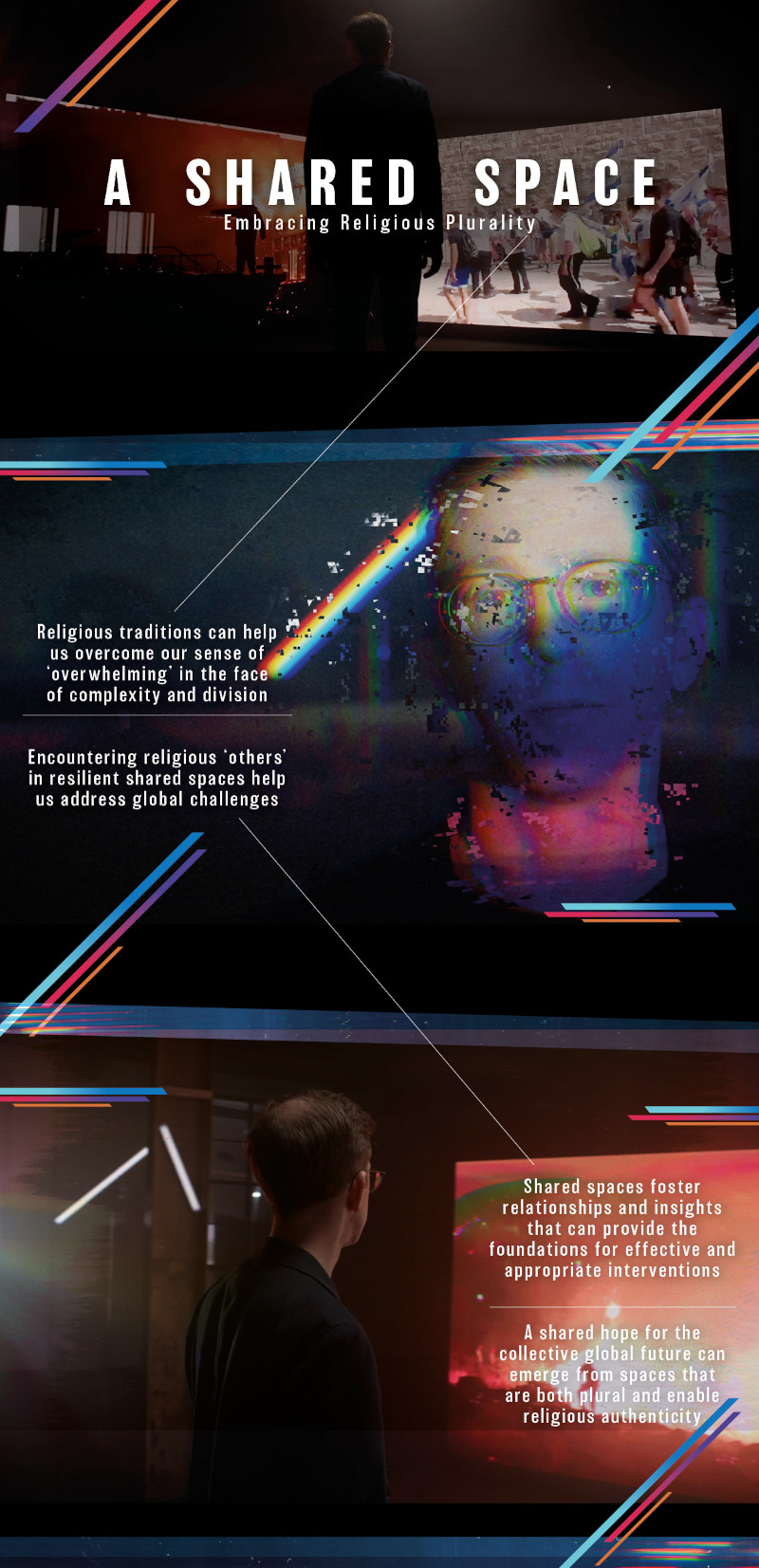In the West we’ve come to view religion as either irrelevant or detrimental to how we tackle the global challenges of our age – but what if the opposite were true?
We live in times where we are overwhelmed by information, emotion, and complexity – with the technologies meant to connect us leaving us feeling disconnected, anxious and divided.
In this fragmented world, ancient religious traditions re-emerge and intersect with modernity; faiths may anchor people amidst their uncertainties, but they can also reignite combative, tribal instincts.
But what if, instead of seeing religious differences as an obstacle to tackling the collective challenges our world faces, we saw them as a vehicle for exploring shared solutions? What if the question of how we live together as a world of different religious traditions is central to forging the world we want to build?
That’s what the ‘Shared Space’ seeks to do – to develop a better understanding of the principles and practices that sustain plural spaces of encounter. These encounters are fundamental for drawing together different religious ways of thinking and being that lay the foundations for a robust civil society.
In contrast to an exclusively secular approach, these shared spaces provide the platform to address some of the most significant concerns of our time such as climate change and women’s leadership. Inclusive participation is key to this. Through building bridges across faiths, communities, countries and sectors we foster collaborations for inclusive dialogue that generate practical solutions.
New relationships. New insights. New interventions. These are the outcomes of the Shared Space. And while there are no neat simple solutions in this conflicted and complex world, we can find common purpose and humanity. And our film explores how this fostering of religious pluralities might be taken forward in imaginative ways and shared around the world.
We end on a positive note: acknowledging that in the midst of our ‘overwhelming’, by harnessing the power of religious pluralities, we can find ways forward… we can find hope for the future.
